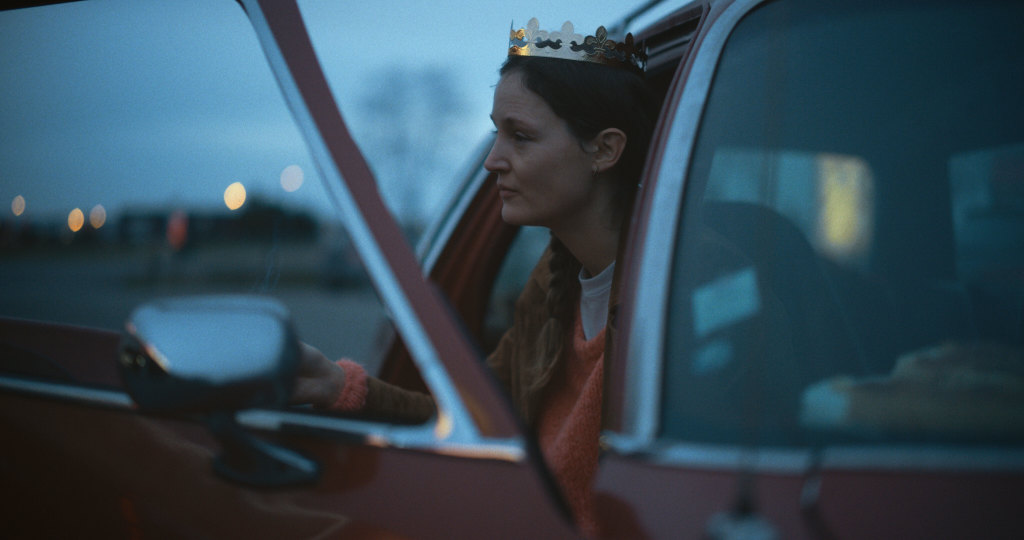The narrative action of Mathieu Amalric’s latest directorial feature, Hold Me Tight, adapted from a play which was never staged, takes place in a kind of suspended timeline. One day Clarisse (Vicky Krieps) wakes up, gets dressed, and goes for a drive. In voiceover we hear that she has left her two children and husband and bears, it seems, no intention of returning. We see the family that has been left behind as they adjust to her sudden departure: the kids act out, the husband hides his panic, and they eventually begin settling into their new life.
But it dawns on us early (perhaps too early) that we aren’t getting the full story. Through Amalric’s unconventional structure that leaps through a fuzzy timeline and from fantasy to reality—and through a growing disconnect between what our narrator tells us and what we see—it becomes apparent that something darker, more final had occurred.
What matters is that she is now alone and faced with the task of retrieving her sense of self without the buoy of her family. The adjustment is messy, and Krieps allows her character’s grief to look undignified; Clarisse is impulsive, inappropriate (she subjects a stranger sitting next to her at a bar to a desperate and sensuous hug), mercurial, and—if this isn’t too ghoulish a thing to say about someone going through something unimaginable—a little annoying.
Her emotional turbulence is underscored by the film’s restless structure; scenes flicker past without much sense of whether they occurred in the past or the future or at all as scraps of music, played by Clarrisse’s daughter Lucie (Anne-Sophie Bowen-Chatet) on the piano, stop and start irregularly. The approach works, at least thematically: what Clarisse has experienced is so world-altering that it makes sense her grip on reality and continuity would no longer hold. But despite Hold Me Tight‘s constant movement, the whole feels dramatically inert, a spiral of action that struggles maintaining momentum.
The driving force of this film is Vicky Krieps’ performance, and once we have passed the mid-way reveal and can confront her situation more directly, things start to take more shape. There are some inspired moments: at a bar, Clarisse catches a few minutes of a documentary about the concert pianist Martha Argerich and is so taken with her that she imagines she has given birth to her. Now, in her fantasies of her family, her pre-teen daughter has the gray hair, shapeless linen tunic, and domineering attitude of the aging pianist. Certain moments aim for resonance but land somewhere closer to whimsy, such as when Clarisse plays a memory game with polaroids of her family, turning them over, trying to match up the moments.
Amalric keeps proceedings grounded even as Clarisse’s imaginings become increasingly fanciful, allowing the moments of brutal reality to land. And there’s confidence and verve in his style, ample sensitivity in Amalric’s direction—particularly with his actors. But the whole becomes a bit lost in its jumble of beautiful parts.
Hold Me Tight is now in limited release and will expand.

